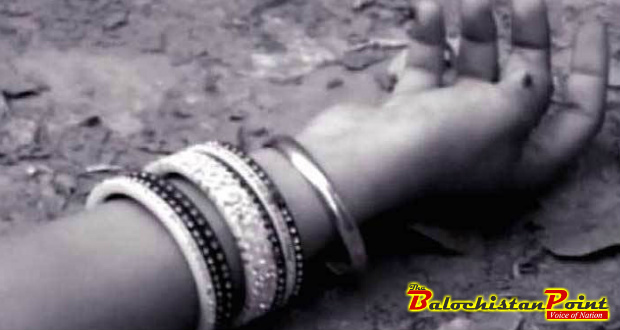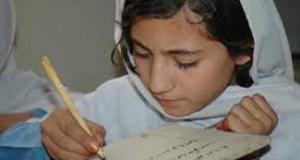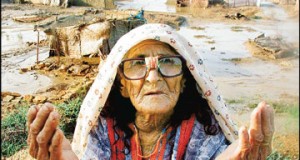By : Abdul Rasool Syed
Woefully speaking, women in our country are subjected to various kinds of abuse and persecution. Rape, domestic violence, forced marriage, Acid attacks and honor killing are the most common injustices that a Pakistani woman has to undergo in our patriarchal society. Of all these crimes against the womenfolk, honor killing is the most serious one that unfortunately, is increasing at disturbing rate in our society. Figures collected by various research organizations in this regard are quite startling and heart-wrenching. According to one estimate, Pakistan has the highest volume of documented and estimated honor killing per capita of any country in the world; about one-fifth of the world’s honor killings are performed in Pakistan (1000 out of the 5000 per year total).
Despite enactment of harsh legal penalties to put an end to this burgeoning social menace, still we, as a nation, have miserably failed to achieve something worthwhile in this respect. Rather than decreasing, this shameful social evil is ballooning day in day out in our society.
Honor killing is defined as murdering a member of the family in the name of honor; it is usually the female who is murdered for bringing shame to the family. In rare cases, men are also victim of this heinous practice, if they bring dishonor to their family or community.
In our country, the Honor killing is ubiquitous in all four provinces. However, Sindh and Blochistan are the most affected regions. In sindh, this shameful practice is called “KARO KARI,” and in Balochistan, this reprehensible custom is dubbed as “SIAHKARI” OR “SIAKHEL”.
There are myriad causes of growing honor killing in our society. One of such causes is contracting the marriage of one’s own choice. According to the article 16 of Universal Declaration of human rights, both men and women of full age, irrespective race, religion and nationality can enter into marriage with any partner of their choice. Our religion Islam also permits both man and women to contract marriage of their own choice. But due to rampant male-chauvinism and patriarchy in our society, such practice is not encouraged; Women, on contrary, are seen as commodity, owned and controlled by their fathers, husbands and brothers. Therefore, if any woman goes against the will of her so-called male owners and weds according to her own choice, she is brutally sent to cemetery in the name of honor.
In addition, another cause of honor killing pertains to those women who seek divorce from their husbands. The husband of such wife who demands for khula( the dissolution of marriage) alleges his wife of having illicit affairs with somebody else and, thus, finds an alibi for murdering her wife in the name of honor.
Honor killing for Rape is also another brutality that is committed in the name of honor. Ironically, if any woman is raped; the family members consider the victim as one who has brought shame to their honor. They, therefore, rather than helping her to come out of the mental and physical anguish that she had to undergo due to man’s barbarism, bump her off covertly to save their so-called honor.
Moreover, The Ratio of honor killings is higher in those provinces where there is abundance of agriculture land. In provinces like sindh and Balochistan, Land is the main reason behind a majority of honor killing. Honor killing in these areas is like “Getting rich quick scheme”.
Shamefully speaking, many individuals exploit the custom of honor killing for gaining pecuniary benefits or land. If both accused of karo kari are murdered then the matter usually ends but if only kari (the female) is killed and karo( the Male) escapes, the karo has to compensate the affected man by giving him money, land or another women…
In some cases, honor killing is also used to settle the accounts with the old enemy. Under any pretext, enemy is invited at home and is then slain in cold blood under the charge of “karo kari”. This practice is most common in sindh.
In order to wipe out the social evil of honor killing, the Government of Pakistan has introduced so many legal reforms but so far such reforms have not yielded any heartening result. It is because of the loopholes in our substantive as well procedural laws that have kept the conviction rate abysmally low in cases of honor crimes.
The first laws pertaining to honor killing in Pakistan are rooted in British colonial rule. In 1835, the British established a law commission to examine the issue of honor killings. The commission sympathized with men who were “dishonored” by their wives, sisters and daughters. It concluded that if a man could prove that he had killed the man under such provocation, the killing should not be deemed as murder but the lesser offence of manslaughter.
In 1990, Pakistan incorporated three element of Islamic Laws into the Penal Code of 1860: Wali (heirs of the victim), Qisas (retaliation/punishment) and Diyat (blood money/forgiveness). The effect of these amendments was to enable men to kill sisters, wives and daughters to restore what they believed the lost of honor, whilst avoiding punishment for their crimes.
In case of intentional murder, wali has the power to “voluntarily and without duress, waive the right of Qisas and any wali who has chosen not to prosecute the offender is entitled to Diyat. Article 306 of the penal code states that “a willful murder would not be punished when an offender causes the death of his child or grandchild, when the legal heir of the victim is a direct descendant.” This means that the murder of an individual, who is direct descendant of the offender, goes unpunished. In the case of wife who had been murdered by her husband, the offender was exempt from Qisas if the couple has children since the child as the “heir of the victim”, would be a direct descendant of the husband.
The Penal code also gave the victim’s legal heir a right to forgive the offender’s crime in exchange for monetary compensation for pardoning the one who has committed the homicide. The exchange of Diyat for a pardon was most commonly used for family members to pardon perpetrators who had killed their wives, sisters or mothers.
However, in the wake of publicity surrounding “A Girl in the River” and the murder of model and social media celebrity Qandeel Baloch by her brother for, in his words, “bringing disrepute to the family’s honor,” former Prime Minister Nawaz sharif proclaimed his commitment to eliminate honor killing by amending the PPC (Pakistan Penal Code) to close the legal loopholes, which were giving way out to the perpetrators of honor killings to go scot-free.
To this end, in October 2016, the parliament passed a bill which mandates life imprisonment or the death penalty for the convicted murderers, whose motive for killing was supposed to be the restoration of honor. Apart, with respect to Wali pardoning the accused and accepting Diya, the amendment provides that those guilty of honor crimes will be sentenced to life imprisonment regardless of whether a pardon is granted by the victim’s legal heir.
Unfortunately, this hopeful experiment has failed. According to statistics maintained by the Human Rights Commission of Pakistan, 1,280 people have been murdered in honor crimes since the enactment of the law. Of these, for more than half no FIRs had been registered or there was no information. Obviously, cases in which no FIR is registered do not result in criminal prosecutions. In addition, according to the experts, these numbers, which are based on estimates from the news media and similar sources, are likely underreported. If the actually reported number of ‘honor’ killings is continuing at a furious rate, then the real number may have increased even more.
On its face, the amendment appears to be right step for eradication of honor killing; it also has a number of faults. Judges, for example, have wide discretion under the amendment to decide whether a particular killing is simple murder or a murder in the name of honor and whether to impose a life sentence rather than death penalty.
Moreover, perpetrators can claim their actions were motivated by factors other than restoration of honor in order to avoid mandatory sentences of life or death. Thus, if a man is accused of an honor crime, yet denies his motive was based on the grounds of honor, he faces a sentence of up to twenty-five years but could not be pardoned by the victim’s family because Diya was only eliminated from the Penal Code for honor killing, not plain homicide.
To cap it all, we as enlightened members of the society should raise our voice against this shameful and barbaric social evil. The executive as well as judiciary should work shoulder to shoulder to bring the culprits to the book. It requires collective will of the nation but unfortunately like on other matters, the nation seems to be divided on this grave issue as well. The fact of the matter is that the practice has relatively high rate of approval in our society. According to PEW research poll, 4 out of 10 Pakistanis agreed to the practice of honor killing. In fact, when 2016 amendment was adopted, only one third of the representatives in the parliament chose to attend. A conservative senator, Hafiz Hamdullah, expressed sentiments of many, stating that the government was trying to enforce western values in the country. However, the government should not listen to such conservative voices and work diligently for the promotion of human rights without any reservation; after all, this is the matter pertaining to the honor of our nation as a whole…
Writer is a Legal practitioner-cum-columnist based in Quetta Balochistan…
Published in The Balochistan Point on June 18, 2019
 Balochistan Point Voice of Nation
Balochistan Point Voice of Nation




